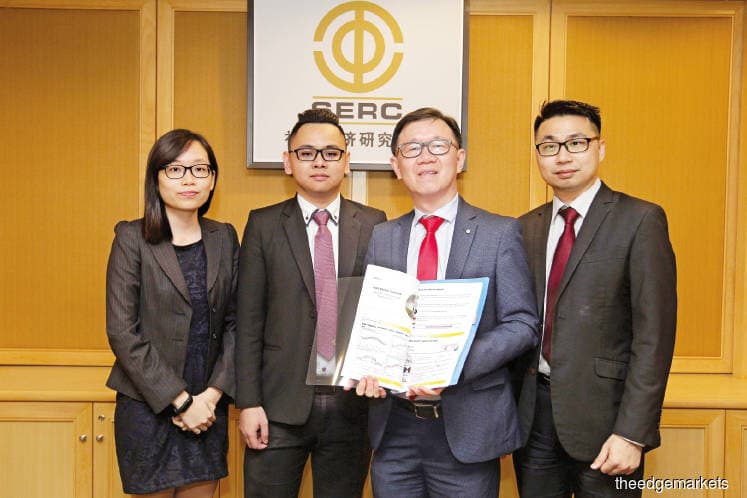
This article first appeared in The Edge Financial Daily on January 15, 2020
KUALA LUMPUR: The Socio-Economic Research Centre (SERC) is expecting Malaysia’s exports to recover in 2020 with an estimated 2% expansion, following an estimated contraction of between 1.5% and 2% for 2019.
The improvement in exports will be underpinned by easing trade tensions helping to stabilise global trade, 5G deployment boosting the semiconductor industry, and higher prices for commodities such as crude and palm oils, said SERC executive director Lee Heng Guie during a press conference on SERC’s outlook for the year.
From January to November last year, exports contracted 2.1% mainly due to slower global demand due to a prolonged trade conflict between the US and China, Lee said. December data are expected to be released soon.
The phase-one trade deal between the US and China, due to be inked today, will improve investor sentiments and ease downward pressure on global economic and trade conditions, Lee said, adding that the interim trade agreement’s signing is positive for future negotiations.
“If the US and China sign a phase-two trade deal, it will further uplift the positive sentiment, in turn serving as a positive catalyst for SERC to reassess the gross domestic product (GDP) forecast for the country,” Lee said.
Easing trade tensions and a low interest rate environment globally will set the scene for a stable global growth in early 2020, Lee said.
SERC projects a faster global growth of between 3.2% and 3.4% — up from the projected 3% for 2019 — if there is a material de-escalation of trade tensions or a trade war retreat. There is a 50% chance of this base-case scenario playing out, according to SERC.
If further trade talks go smoothly and policy stimulus takes place as expected — which SERC predicts a one in five chance of happening — global growth could accelerate to 3.5% this year.
However, growth could slow to between 2.8% and 3% if policy stimuli fails and geopolitical tensions deepen, which could lead to unexpected economic shocks, said SERC. This has a 30% chance of taking place, according to SERC.
Malaysia’s growth to ease to 4.5% in 2020
SERC forecasts the country’s GDP will grow slower at 4.5% compared with 4.6% last year, based on an estimated global growth of 3.2% to 3.4%.
This also factors in a stronger growth in private investment of 2.2%, versus 0.8% projected for 2019 — the slowest in nine years as investors become wary amid a volatile external environment and a less-than-stable domestic political landscape, coupled with uncertain policy implementations.
In particular, he said an unstable political environment may undermine investors’ confidence in the country, leading to reduced investments, which can hinder the pace of economic development.
As such, he said the government should prioritise a smooth leadership transition, set a clear direction for policies, deliver on its unfulfilled manifesto promises, improve its communications with the people and ensure projects are executed in a timely manner.